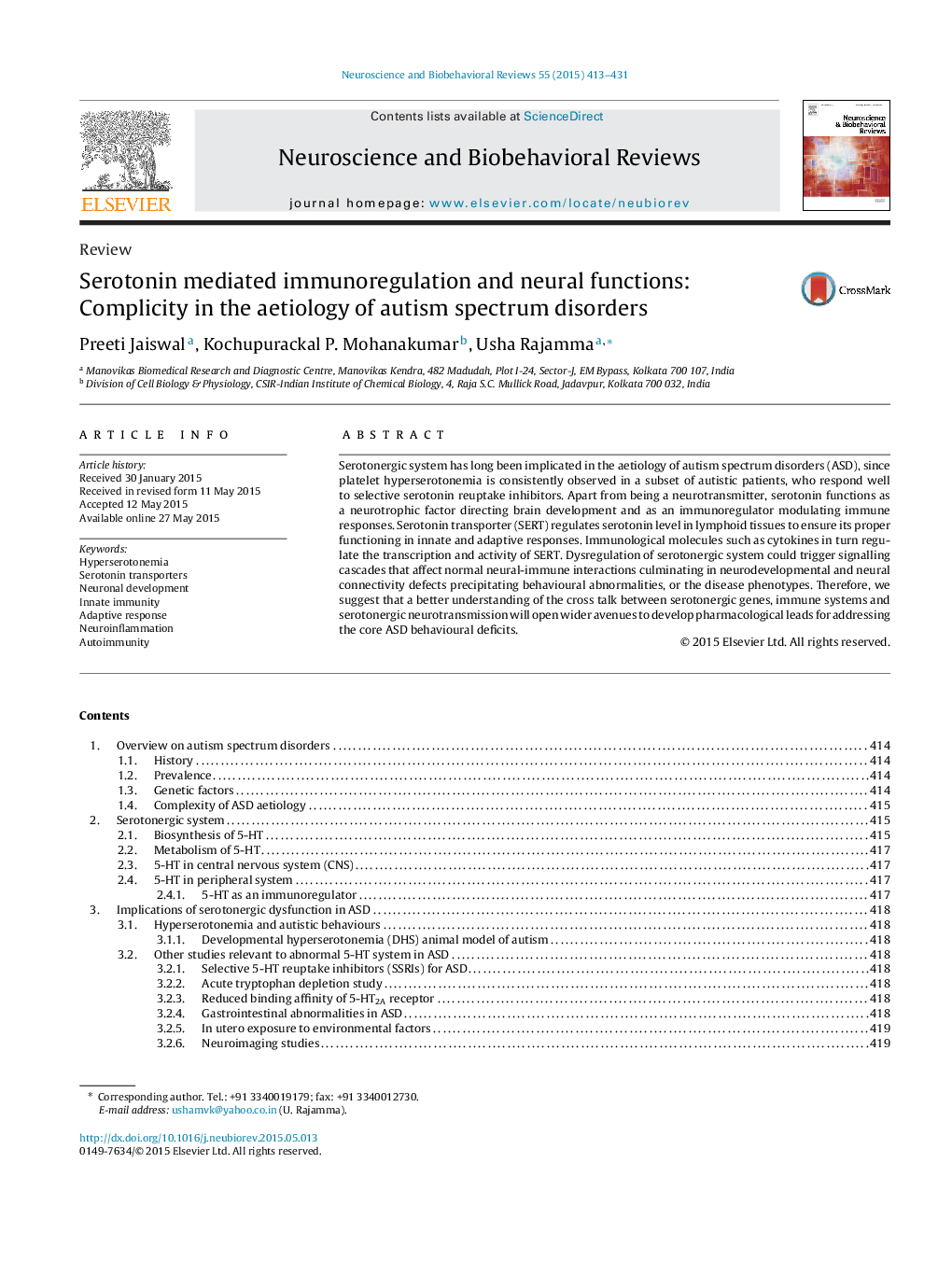| Article ID | Journal | Published Year | Pages | File Type |
|---|---|---|---|---|
| 7303501 | Neuroscience & Biobehavioral Reviews | 2015 | 19 Pages |
Abstract
Serotonergic system has long been implicated in the aetiology of autism spectrum disorders (ASD), since platelet hyperserotonemia is consistently observed in a subset of autistic patients, who respond well to selective serotonin reuptake inhibitors. Apart from being a neurotransmitter, serotonin functions as a neurotrophic factor directing brain development and as an immunoregulator modulating immune responses. Serotonin transporter (SERT) regulates serotonin level in lymphoid tissues to ensure its proper functioning in innate and adaptive responses. Immunological molecules such as cytokines in turn regulate the transcription and activity of SERT. Dysregulation of serotonergic system could trigger signalling cascades that affect normal neural-immune interactions culminating in neurodevelopmental and neural connectivity defects precipitating behavioural abnormalities, or the disease phenotypes. Therefore, we suggest that a better understanding of the cross talk between serotonergic genes, immune systems and serotonergic neurotransmission will open wider avenues to develop pharmacological leads for addressing the core ASD behavioural deficits.
Keywords
Related Topics
Life Sciences
Neuroscience
Behavioral Neuroscience
Authors
Preeti Jaiswal, Kochupurackal P. Mohanakumar, Usha Rajamma,
